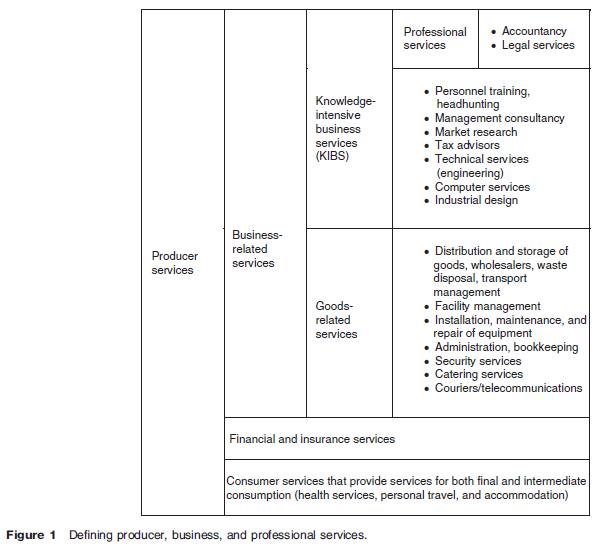Defining Business Services
The academic literature on business services has its foundations in a ground breaking monograph published by Harry Greenfield in 1966. In this classic work, Greenfield argued that the consumer/producer dichotomy with respect to goods could also be applied to services. Consumer goods are produced to satisfy final demand while producer goods (machine tools, etc.) are intermediate inputs that contribute to the further production of output. He argued that a category of consumer services existed, as well as producer services with the latter providing intermediate inputs into the activities of private and public sector organizations. The new term 'producer service' described all services that business firms, not for profit institutions, and governments provide and sell to producers rather than consumers. The category of producer service includes all intermediate services ranging from finance, insurance, and real estate (FIRE), business services, and professional services. Business services are a subcategory of producer services as the term excludes FIRE and consumer services that can be used for final and intermediate consumption (Figure 1).

The term business services covers a broad spectrum of services that are predominantly traded in business to business transactions. In practice, a number of business services are used by both producers and consumers, for example, an accountant can complete tax forms for individuals or firms. The category of business services is further divided into two types. First, goods related services directly support operational activities required to produce goods and services. This subcategory includes security, catering, and facility management. Second, knowledge intensive business services (KIBS) provide information and often strategic knowledge interventions into the activities of their clients. This subcategory includes computer services, industrial design, technical services, market research, executive search, and management consultants. It also includes a further subcategory of 'professional services' that includes legal and accountancy services. In all cases, business services are identified as activities that complement, substitute, or develop the in house service functions of their clients.